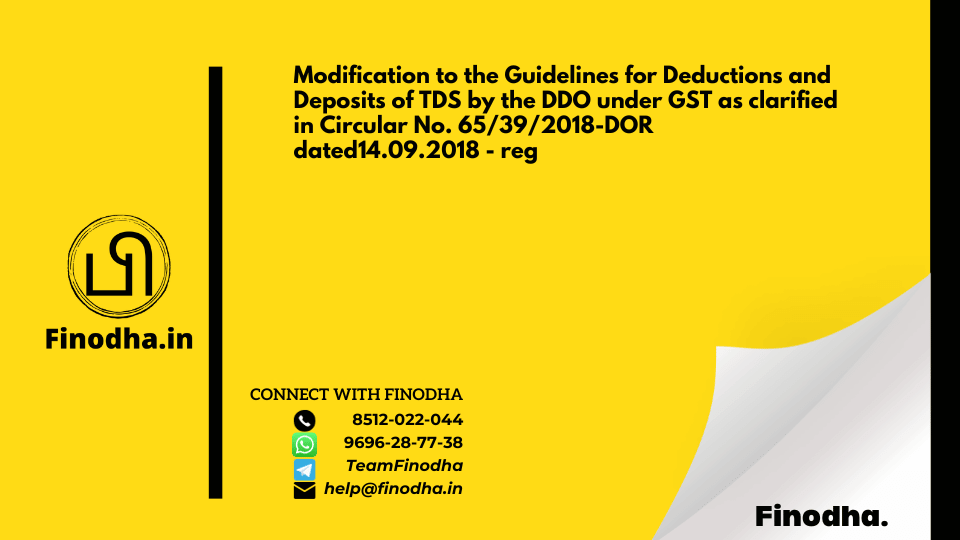Important Keyword: Audit Report, Business and Profession Income, Section 44AB.
Table of Contents
Who is Required to Maintain Books of Accounts?
Section 44AA of the Income Tax Act outlines the requirement for certain professionals to maintain books of accounts. The provision applies to individuals engaged in specific professions where the gross receipts exceed a certain threshold. Here are the key points:
- Applicable Professions:
- Legal
- Medical
- Engineering
- Architectural profession
- Profession of accountancy
- Technical Consultancy
- Interior Decoration
- Authorized Representative
- Film Artist
- Any other profession notified by the Board in the Official Gazette
- Threshold for Maintenance:
- If the total gross receipts in the profession exceed INR 1,50,000 in any one of the 3 years immediately preceding the previous year, or
- If the profession is newly set up in the previous year, and the total gross receipts in that year are likely to exceed INR 1,50,000.
- Books of Accounts to be Maintained:
- Rule 6F specifies the books of accounts that need to be maintained, including:
- Cash Book
- Journal
- Ledger
- Carbon copies of bills and receipts issued by the professional
- Rule 6F specifies the books of accounts that need to be maintained, including:
- Non-Applicability:
- Individuals engaged in these professions but falling below the prescribed threshold are not required to maintain books of accounts under Section 44AA.
- Penalty for Non-Compliance:
- Failure to maintain books of accounts as required by Section 44AA may lead to penalties under the Income Tax Act.
Here is a summary of the above requirements:
| Type of profession / business | Condition 1 | Condition 2 |
| Specified Professions i.e; Legal, Medical, Engineering, Architectural, Accountancy, Technical Consultancy, Interior Decorator, Authorized Representative, Film Artist. | Total Gross Receipt in the profession exceeds INR 1,50,000 in any one of the 3 years immediately preceding the previous year. (where the profession has been newly set up in the previous year than in that case if his total gross receipts for that year are likely to exceed INR 1,50,000.) | – |
| Non- Specified Professions and Business | Income from business and profession exceeds INR 1,20,000. (In case newly set up business or profession if his income from business or profession is likely to exceed INR 1,20,000 during such previous year) | Total sales, turnover or gross receipts in business or profession exceeds INR 10,00,000 in any one of the 3 years immediately preceding the previous year. (In case of newly set up business or profession if his total sales, turnover or gross receipts is likely to exceed INR 10,00,000 during such previous year.) |
Under Rule 6F of the Income Tax Act, certain specified professions have additional requirements for maintaining books of accounts and documents. Even if the gross receipts do not meet the threshold specified in Section 44AA, individuals in these professions must maintain proper records to enable the Assessing Officer to calculate taxable income. Here are the details:
Books of Accounts and Documents Required:
- Cashbook: Records all day-to-day cash receipts, payments, and cash balances.
- Journal: Records financial transactions in order by date, particularly if accounts are maintained under the mercantile system.
- Ledger: Contains complete records of financial transactions, including assets, liabilities, equity, revenues, and expenses.
- Carbon Copies of Bills: For bills issued exceeding INR 25.
- Original Bills: For expenditure exceeding INR 50.
Additional Requirements for Medical Professionals:
- Daily Case Registers (Form 3C): Includes details such as patient’s name, nature of service rendered, fees received, and date of receipt.
- Inventory: Maintain records of stock of drugs, medicines, and other consumable accessories used in the profession, as on the first and last day of the previous year.
Location of Maintenance: The books of accounts and documents should be kept and maintained at the principal place of the profession or at the respective places where the profession is conducted.
Compliance with these rules ensures that professionals, especially in specified fields like medicine, maintain accurate financial records, facilitating tax assessment and compliance with income tax regulations.
| Taxpayer | Profit/Loss | Applicable Taxing Section | Applicable as per Section 44AA |
| Business | |||
| Income > INR 1,20,000 | Profit | Normal Provisions | Yes |
| Sales, turnover, gross receipts > INR 25 Lakh | Profit/Loss | Normal Provisions | Yes |
| Sales, turnover, gross receipts </= INR 25 Lakh | Proft/Loss | Presumptive Taxation – Section 44AD | No |
| Sales, turnover, gross receipts </= INR 25 Lakh | Profit/Loss | Normal Provisions | No |
| Turnover </= 2 Cr | Profit | Presumptive Taxation – Section 44AD | No |
| Turnover </= 2 Cr | Loss | Presumptive Taxation – Section 44AD | No |
| Turnover </= 2 Cr | Profit/Loss | Normal Provisions | Yes |
| Profession | |||
| Gross receipts </= 50 Lakh | Profit/Loss | Presumptive Taxation – Section 44AD | No |
| Gross receipts </= 50 Lakh | Profit/Loss | Normal Provisions | Yes |
Under Section 44AA of the Income Tax Act, individuals engaged in certain professions are required to maintain books of accounts and other specified documents. These records must be preserved for a period of 6 years from the end of the relevant assessment year. Failure to maintain these records can result in a penalty of INR 25,000.
If the taxpayer is involved in international transactions or specified domestic transactions and fails to maintain the necessary information and documents, a penalty of 2% of the value of each international transaction may be imposed. However, if the taxpayer can demonstrate a reasonable cause for the failure, this penalty may not be levied.
Additionally, under Section 271A, a penalty may be imposed for failure to maintain accounting records as required by Section 44AA. The maximum penalty for this offense is INR 25,000. However, if the taxpayer can provide a reasonable cause for the failure, no penalty may be levied.
As for who needs to get their books of accounts audited under Section 44AB:
- Businesses: If the turnover or gross receipts of a business exceed INR 1 crore in a financial year, they are required to undergo a tax audit.
- Professionals: If the gross receipts from a profession exceed INR 50 lakhs in a financial year, they must undergo a tax audit.
Compliance with these requirements ensures proper record-keeping and tax compliance, minimizing the risk of penalties and ensuring smooth tax assessments.
| Tax Payer | Audit of books of accounts when |
|---|---|
| An individual carrying on Business | Total sales, turnover or gross receipts, in business exceeds 1 Crore rupees in any previous year. |
| An individual carrying on Profession | Gross receipts in profession exceed 25 Lakh rupees in any previous year. |
| An individual covered under presumptive income scheme U/S 44AD | Income of business is lower than the presumptive income calculated as per section 44AD and the total income is more than the minimum income which is exempt from tax. |
Which Tax Audit Reports to be Submitted and What are the Due Dates for the same?
| Taxpayer | Audit Report | Prescribed particulars | Due Date of Audit | Due Date for Submission of Report |
|---|---|---|---|---|
| A person who carries on business or profession who is required to get his accounts audited | Form 3CA | Form 3CD | 30th September of the assessment year | 30th September of the assessment year |
| A person other than those listed above | Form 3CB | Form 3CD | 30th September of the assessment year | 30th September of the assessment year |
In the case of international or specified domestic transactions, the time limit for audit and submission of report is November 30.
Failure to conduct the audit of accounting records as required by Section 44AB of the Income Tax Act may result in the imposition of a penalty under Section 271B.
The penalty amount is calculated as the lower of the following:
- 0.5% of the total sales, turnover, or gross receipts of the taxpayer’s business or profession, or
- INR 1,50,000.
Taxpayers can avoid this penalty if they can demonstrate a reasonable cause for not having their accounting records audited. Providing a valid explanation for the failure can lead to the waiver of the penalty. However, it’s essential for taxpayers to ensure compliance with audit requirements to avoid penalties and maintain proper tax compliance.
Read More: Presumptive Taxation Scheme: Everything you need to know.
Web Stories: Presumptive Taxation Scheme: Everything you need to know.
Official Income Tax Return filing website: https://incometaxindia.gov.in/
-

Circular No. 66/40/2018 – GST: GST on Residential programmes or camps meant for advancement of religion, spirituality or yoga by religious and charitable trusts
-

Demystifying the Financial Backbone: The Consolidated Fund of India
-

Circular No. 67/41/2018 – DOR: Modification to the Guidelines for Deductions and Deposits of TDS by the DDO under GST as clarified in Circular No. 65/39/2018-DOR dated14.09.2018 – reg

